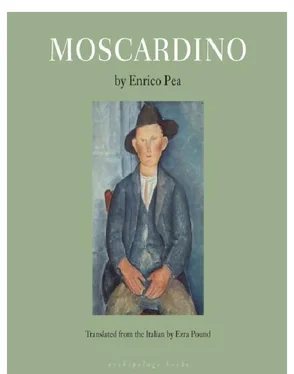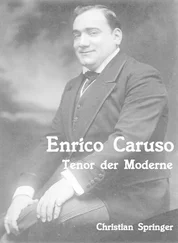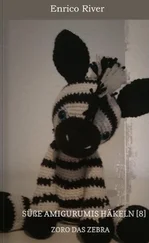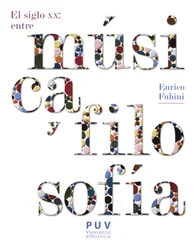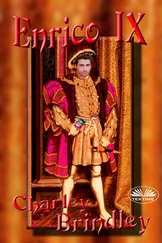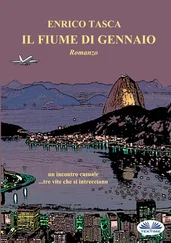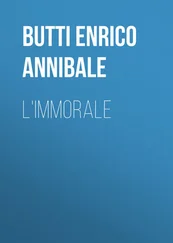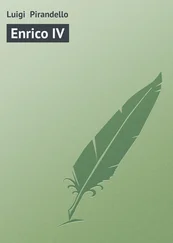I wish you would think of me as your father, if priests could have children. I brought you up, you may say, with pap and pacifier, and when you were grown I gave you good housing. If you no longer like me, I have been deceived by your benevolence, have you lost the good Christian qualities that I taught you?
What do you mean by “your servant even now that I am married”? You got married, does that mean that you are to kick over the traces and run wild like a yearling in heat?
If you do, you aren’t like your mother of blessed memory. And in saying this Don P.G. got excited. He lost that serenity so habitual to him even in difficult moments.
And Sabina listened to him with irritation as if champing on the bit of a discipline grown insupportable.
The wind turned icy and harsh, the sea roughened and cast off the gulls as if impatient at having tolerated their perching on its rump for so many hours.
The calkers prophesied rain from the heavy flag-like clouds that saddened the heaven. There will be a downpour of big drops before long, pocking the sand waste.
They stretch brown oilskins over the upturned boats, awning’d out a bit further so they can work under them as under a cabin roof. The men looked like journeymen sweeps and locksmiths in orgasm, who on arriving in a country square when it is about to rain find the peasants asking sweeps and tinkers, have they brought the rain and bad luck? Then they look cross and don’t have their chimneys done or their kettles fixed, if it rains before the tinkers’ tents are up and the forges and bellows got going.
The calkers push aside ropes and nets, get astride the boats on the part plugged already and calked, and start again tapping the chisels that enlarge the cracks to get out the old tow between plank and plank.
The pitch smoke from the boiling iron cauldrons spreads out low, hanging heavy in the clogging heavy air, hiding the little hunch-back half naked who tends the fire and blows.
I lived with my gran’dad on Monte di Ripa.
My mother worked in the city. My father was dead and I had a brother who had convulsions, who stayed with a woman who looked after him out of charity. That woman was the butcher’s wife and helped in the butcher shop and to kill in the slaughterhouse.
On slaughter days she didn’t come home and my brother was alone shut up in the house, and he had convulsions.
They sometimes found him on the floor, as if dead. Sometimes she got drunk and cursed, and beat him.
At Carnival he died, and that woman said: blessed paradise!
She had been to the Carnival dance, and came in and stepped on him, then she noticed him. Took the cold body and threw it onto the bed. She took off his checked suit and spread a sheet over my brother whose soul was now safe.
I didn’t see him, but I know what he looked like. Once I had seen him twitching on the floor, the door was half open, and the woman who kept him out of charity was at the butcher shop, and I looked through the key-hole and called him.
Then I ran to call her, and when she came back he was stiff.
I didn’t see him dead but I can always see him stiff, as he was that day.
My gran’pop, called back to his native earth, called by the house and the town, had come from his travels to stop on in peace.
All his life had been voyage from a dream to a dream, from township to township or to far country.
In his young days the war had taken him as volunteer into its toils. Later, love armed his hand again. But neither love nor war had absorbed him. Now he felt the blood less restive in his veins and less turbid in warming his heart.
Middle high, live glance, biblical beard like my own, thick hair shining like filed iron. Face bright and rosy, thick mulatto’s lips like a sucking infant’s, he talked of life and death; of Dante, love, early grain crops, manures; half shutting and wide opening his eyes as if fixing an image when he got het up over poetry and things of that sort.
If, on the other hand, he talked of his own past life, of Cleofe, of the mad house, of the way gooks carry on — and he had passed the best part of his life among ’em — his voice grew gentle, he explained things as if he were talking of someone else.
He had the same intonation when he talked of Aladdin lost in the magician’s cave among the jewels.
Every now and again he would try to fix a lost detail.
He laughed over his wasted life. It seemed to me odd that he would get into a passion when he talked of the Emperor of Hell with three heads of hideous colour so big he could eat a sinner in each of his three mouths at once. What excited my terrified fancy were the six black wings on the shoulders of so huge an animal, stuck fast to his midriff in ice.
As I had heard that many people sell their souls to the devil to get money in this world, I shook with fear at night, when I thought that my grandpop in some need or other in those far countries might have sold his soul to the devil.
Once he told me that when he was a kid and on the point of drowning he had seen the Madonna.
That made me cry.
We were at the hearth and it was raining. My grandfather had put out the light for economy. The room was lit by the embers. I was on the hearth with the Pomeranian bitch. My grandfather on the straw-plaited stool. I hid my teary face in the bitch’s yellow coat.
My granddad began to mutter through his teeth, then roared at me: Take down that dog! Put down that dog!
I set the dog on the wooden floor. My granddad got up suddenly, opened the door and drove out the dog. That is the way to bring up cowards, instead of men. If I don’t die too soon I’ll learn ye!
Shut up the stable! Go feed the sheep! He opened the door. The water groaning in the gutters splashed on my bare head.
Foscolo was a small-sized black dog with rather long thin legs, pointed ears and a tail sticking up.
Our next-door neighbor who was older than granddad and as crotchety had taught Foscolo to walk on his hind feet, to bring back stones, to hunt for a hidden handkerchief, to eat raw onions, to drink wine and hold a lighted pipe in his teeth.
Our next and wrathy neighbor came in the evenings to sit at our fire, with a gun slung over his shoulder, with Foscolo as lictor.
The old men got het up and talked of happenings, and I rolled about with the two dogs scraping round on the floor in the dark in the next room.
That sole distraction, I waited for with infantile joy.
Those two dogs were my world.
I was convinced that they knew me by name, I noticed that certain yaps were my name, namely BUCK.
They called me “Buck” by those yelps as I called them by their names.
When Foscolo was tied up by the neighbor’s threshing floor, I called him: “Foscolo.” He replied with a long howl always the same, so that I knew he was tied. If on the other hand he was loose, he barked pleasantly, jumping around his old master as if asking permissions. Then I knew he was loose and continued to call him. Sometimes he did not ask permission. He came quickly through the vines, made four capers and rushed away.
Even my granddad was fond of Foscolo, because he said our Pomeranian bitch had lost her virtue and was no longer any good as a watch dog, since the time she had been carried off with the carts that carry the wine down to the plain of Lucca.
If you give me Foscolo, I’ll give you the bitch. Pomeranians are scarce in these parts, and I’ll give you a rooster that’s a phenomenon, they’ve promised to bring me from Apulia. It’s a cock without claws.
It don’t scratch. You can leave it loose during seeding time. Eggs that cock makes will be wanted, you can sell ’em high everywhere.
The old neighbor laughed in his face, with his pipe wobbling in his mouth, betting that that clawless rooster was a hoax which my educated granddad wanted to put over him a poor old contadino.
Читать дальше
